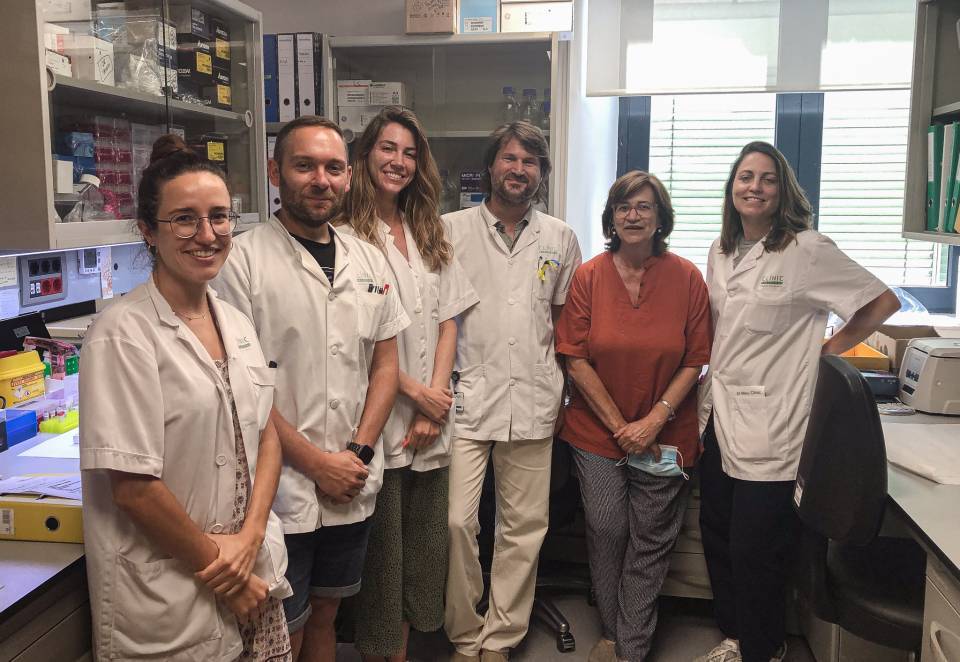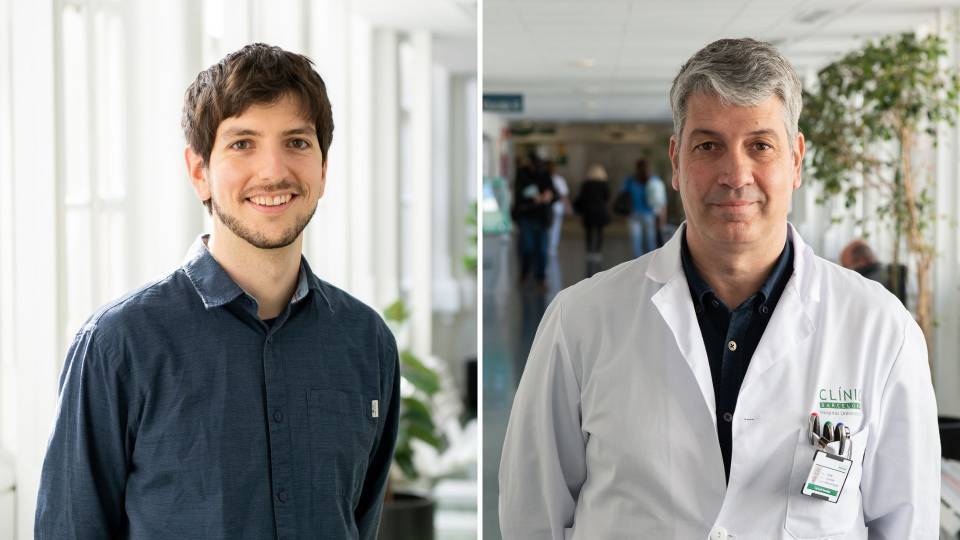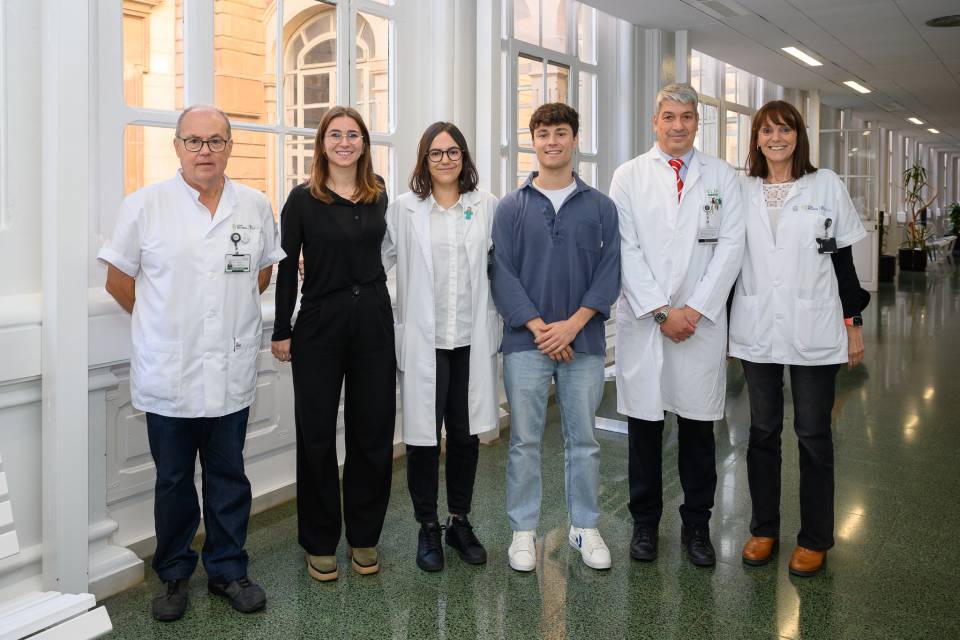- What is it?
- Causes and risk factors
- Signs and symptoms
- Diagnosis
- Treatment
- Living with the disease
- Evolution of the disease
- Research
- Preguntas frecuentes
Preguntas frecuentes sobre la enfermedad de Parkinson
The cause of the disease is unknown, but it is thought that the majority of cases are due to a combination of environmental, molecular and genetic factors.
In a small percentage of cases, Parkinson's disease can be inherited. In cases where there is a family history of the disease, certain causative genes can be studied. In clinical practice, if there is no suspicion of inheritance (several affected family members), a genetic study is not carried out.
The diagnosis of Parkinson's disease is clinical, that is, a specialist will diagnose the disease based on an interview with the patient and according to their discomfort, answers to questions and a neurological examination. There are tests that can help a diagnosis, but none can determine the disease.
Parkinson's disease has a variety of symptoms. Despite being the best known symptom, tremors are only one of many and up to 40% of patients may not have them. The most characteristic feature of the disease is slowness, others are stiffness, instability and tremors, typically when resting.
The most important thing to do is lead a healthy life, avoid consuming toxic substances, follow a healthy diet, such as the Mediterranean diet, rich in fruits and vegetables, avoid saturated fats, etc. and, above all, exercise. Choose a sport or leisure activity that you enjoy doing and that you can do easily. Recommendations include Tai chi, cycling, and ballroom dancing, among others.
The evolution of the disease is very different for each person. Over time, the disease can affect walking to the point of needing some sort of support, such as a cane, walker or wheelchair, which will help the patient be autonomous and prevent falls.
It is not usual for memory to be affected during the initial years of the disease, but in some patients concentration issues can be improved with treatments. In advanced stages, cognitive problems, including memory, are more frequent. This is why we recommend leading an active life that stimulates motor skills and your cognitive abilities (reading, theatre, visiting museums, memory workshops).
Treatment for Parkinson's disease is currently symptomatic and does not modify the course of the disease. So if symptoms at the onset of the disease do not cause discomfort or disability, initiation of treatment may be deferred.
Parkinson's disease is a neurodegenerative disease that does currently not have a cure and there is no medication preventing its progression. After approximately five years of treatment, 50% of patients will develop motor fluctuations due to a decrease in response to medication. This may be due to a delay in drug absorption and a loss of dopamine-producing neurons. To improve this, conventional treatments can initially be adjusted, but when these issues become more serious we need to resort to more complex therapies (drug infusions or deep brain stimulation surgery).
Drugs that block the dopamine receptor such as certain antipsychotics and frequent use of antiemetics such as metoclopramide, among others, are not advised.
If you have a vitamin deficiency, they are indicated. In some specific cases, supplementation is not indicated and may even be problematic (for example, vitamin B6 can interfere with the effect of levodopa).
Yes, Parkinson's disease affects your motor function and many other aspects, such as an interest in activities and wanting to spend time with other people and can cause fatigue.
Yes, we recommend you follow a healthy, Mediterranean diet, rich in fruit, vegetables and fibre and avoid saturated fats and fried food. Give-up or cut-down on alcohol and other toxic habits such as smoking.
Excessive alcohol consumption can cause liver damage and increase the risk of pharmacological side effects. We recommend avoiding alcohol altogether or at least consuming only small quantities. As for smoking, it should also be avoided: it is a proven cardiovascular risk that increases the probability of having a myocardial or cerebral infarction. It increases the risk of lung and many other cancers. Not smoking will help your overall health.
You can and it is highly recommended. It should be part of your treatment regime. Sports that are highly recommended include Tai chi and cycling, but any sport that you enjoy doing or that can be easily accessed is recommended.
Yes, there is no contraindication to air travel. Driving is not usually a problem until advanced stages of the disease.
The treatments we currently have for Parkinson's disease improve motor and non-motor symptoms, but they cannot cure the disease nor change its evolution. Several treatments that might have a possible modifying effect on the course of the disease are being studied.
The most common side effect of levodopa is gastrointestinal intolerance. It can cause nausea and gastric discomfort. Other side effects include skin oedemas from dopamine agonists and impulse control disorder (gambling, hypersexuality, hyperphagia, etc.). Other medications, such as amantadine, can cause skin disorders. They are mostly mild effects that can be reversed by adjusting the treatment. Identifying impulse control issues as soon as possible is essential to controlling these disorders.
Yes. The most common type of surgery is deep brain stimulation. It consists of placing electrodes in a deep part of the brain (usually the subthalamic nucleus). It is not curative, but it is an effective symptomatic treatment in those cases where severe motor fluctuations cannot be controlled with conventional medications and which do not have serious cognitive or psychiatric problems.
Participating in current research taking place to find new and better treatments for not only symptoms but also those aimed at modifying the underlying causes of the disease and improving its evolutionary course is important. A variety of studies are currently being carried out in tertiary centres to deepen our knowledge of the disease, including clinical trials to find new therapies; participation in these trials require that the patient meet specific conditions. Your health specialist can provide information on which studies may be available according to their characteristics.
Substantiated information by:




Published: 8 July 2019
Updated: 14 November 2019
Subscribe
Receive the latest updates related to this content.
Thank you for subscribing!
If this is the first time you subscribe you will receive a confirmation email, check your inbox


